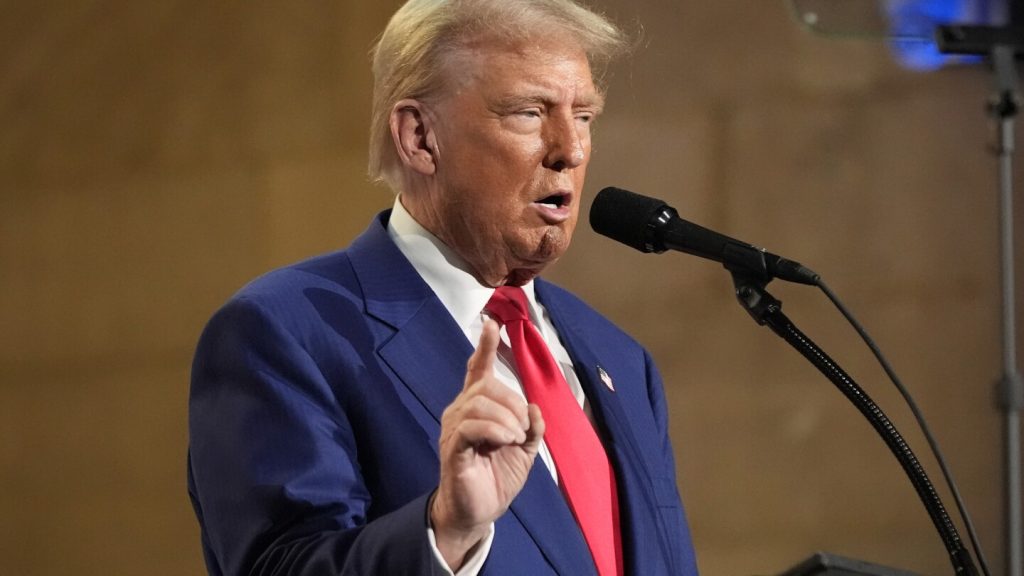Former President Donald Trump proposed plans to increase tariffs on foreign imports as a solution to various challenges, including the rising cost of child care in the U.S. Speaking before the Economic Club of New York, Trump promised a “national economic renaissance” through measures such as increasing tariffs, slashing regulations, cutting government spending, and reducing corporate taxes for companies that produce in the U.S. He argued that taxing imports from foreign nations at higher levels would help address issues like child care costs.
Trump’s embrace of tariffs is aimed at appealing to working-class voters who oppose free-trade deals and outsourcing. He believes that tariffs can raise trillions of dollars to fund his agenda without passing on costs to consumers. However, economists like Kimberly Clausing warn of the potential damage of Trump’s tariffs on people’s finances. Trump’s campaign criticizes Democratic nominee Kamala Harris’ proposals to increase corporate tax rates, arguing that they would negatively impact workers. However, taxes on foreign imports may also result in higher prices for businesses and consumers.
The United States imported $3.8 trillion worth of goods last year, and Trump has previously mentioned implementing universal tariffs of at least 10%. However, the details of how these taxes would be carried out remain unclear. Despite Trump’s claims that tariffs can fund various initiatives like child care, economists like Clausing disagree, pointing out that tariffs cannot fulfill all financial obligations. Furthermore, child care affordability remains a pressing issue in the U.S., with the industry facing financial challenges.
In his economic proposals, Trump outlined plans to boost the domestic energy supply, eliminate regulations, and lower prices. He mentioned reducing the corporate tax rate to 15% for companies producing in the U.S., as opposed to Harris’ proposal to raise the rate to 28%. Trump also condemned Harris’ policy ideas, accusing her of adopting Marxist and communist approaches. He promised to end what he described as Harris’ “anti-energy crusade” and vowed to cut energy prices in half through various measures.
Trump criticized Harris’ economic proposals and pledged to focus on tariffs, cutting energy prices, and ending taxpayer spending on undocumented immigrants. He also aimed to address opposition to new energy projects by declaring a national emergency. Harris’ campaign responded by accusing Trump of wanting to benefit billionaires and corporations at the expense of the middle class. The economic policies of both candidates are expected to be central topics in the upcoming presidential debate, with both campaigns sharpening their positions.
Economists have raised concerns about the impact of Trump’s proposed tariffs on the economy, warning of potential job losses and shrinking GDP. Despite Trump’s assertion that tariffs will bring back manufacturing jobs, critics argue that they could worsen inflation. The Penn Wharton Budget Model estimates the cost of Trump’s income tax cuts, including a reduction in the corporate tax rate, at $5.8 trillion over a decade. The debate over economic policies and the impact of tariffs is likely to be a key issue in the 2024 Election.


